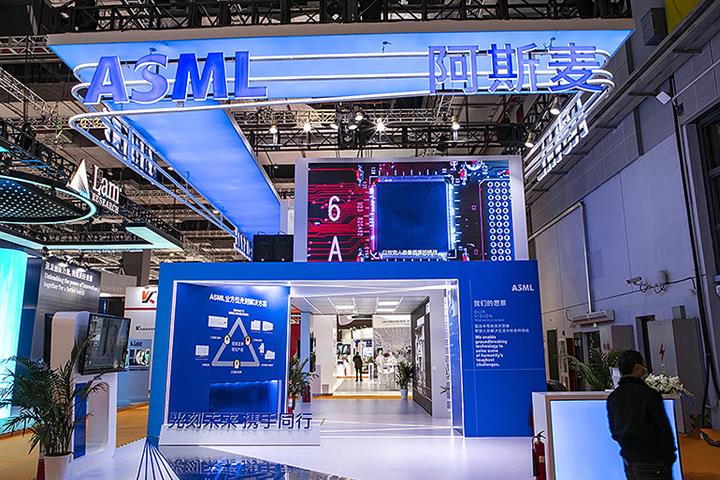The President of ASML in China, Shen Bo, has revealed the company's ambitious goal to achieve an annual capacity of producing 500 to 600 deep ultraviolet (DUV) machines by the end of 2025 or the beginning of 2026. This announcement was made ahead of the 6th China International Import Expo (CIIE) in Shanghai, where ASML participated for the fifth time, showcasing its advanced technologies to support the semiconductor industry.

ASML's lithography equipment, an integral part of semiconductor manufacturing, is in high demand globally, particularly in China where nearly 1,400 ASML machines are currently installed. With a strong emphasis on supporting the growth of the Chinese semiconductor industry, ASML plans to expand its capacity to meet the increasing demand for lithography machines, which are crucial for large-scale image etching on silicon wafers.
The company's comprehensive lithography solutions encompass hardware, software, and services, and it also leads the industry in utilizing Extreme Ultraviolet (EUV) light for lithography machines. Additionally, ASML is focusing on computational lithography, a technology that optimizes imaging light sources and mask designs to achieve precise images and better chip production yields. ASML is currently a key player in this field, holding advanced global computational lithography technologies including Optical Proximity Correction (OPC) and Source-Mask Optimization (SMO).
ASML's commitment to the Chinese market is evident through its significant presence in the country, with numerous offices, warehousing and logistics centers, and development facilities, as well as a growing workforce of over 1,600 employees. Despite recent export control policies impacting a 10-15% portion of ASML's business in China, the company remains dedicated to supporting its customers and the industry's long-term, healthy development.
ASML is currently in the process of hiring over 200 employees in mainland China this year, with plans for substantial local employment expansion next year. Previously, around 15% of ASML's sales came from mainland China; however, sales in China accounted for 46% of ASML’s total revenue in the third quarter of this year. Looking ahead, ASML foresees strong demand for chips manufactured using the entire established manufacturing process, indicating a positive outlook for their business in China next year.
Moreover, ASML has secured an export license for TWINSCAN NXT: 2000i and subsequent immersion lithography systems, allowing the company to continue exporting these machines to China following the implementation of new export control regulations on September 1.
Looking ahead, ASML aims to enhance its manufacturing capacity for DUV machines in response to the anticipated growth in demand, aligning with the company's ongoing efforts to support the global semiconductor industry's progress.







